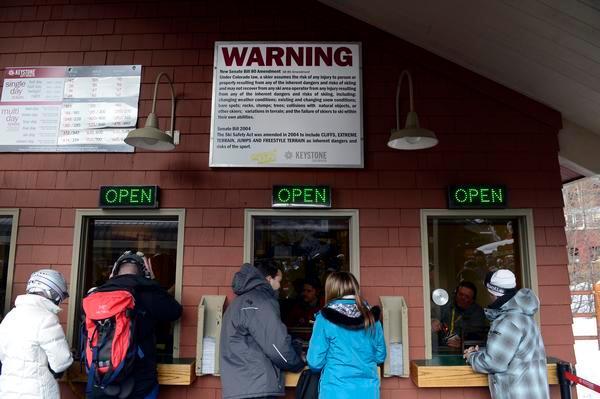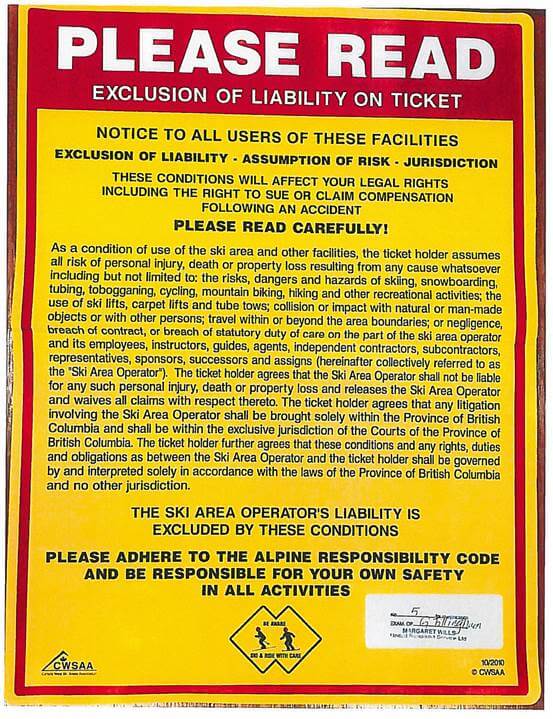
Do waivers grant ski areas complete immunity from all skier injury-related lawsuits—even the ones where it’s the ski area’s fault? It may appear that way in Colorado.
The Colorado Supreme Court will not hear a case that questions the use of waivers at ski areas to protect themselves from lawsuits filed by injured skiers. According to The Colorado Sun, attorneys fighting for skier safety are concerned that resort liability waivers have killed the right for skiers to sue ski areas for injuries sustained while at the resort, even when it’s the resort’s fault. This, the attorneys claim, not only violates the venerable Ski Safety Act but also prevents it from being used at all.
On Tuesday, the highest court in Colorado announced that it would not hear the appeal filed by Charlotte Redden, a skier who was hit by a chairlift at Loveland ski area in March 2017. Redden argued a lift attendant violated regulations in the 1979 Ski Safety Act and the 1964 Colorado Passenger Tramway Safety Act when a chair hit her and broke her pelvis as she slowed to avoid a skier who had fallen getting off the lift in front of her, according to The Colorado Sun.
Colorado Supreme Court declines to hear case challenging ski areas’ use of waivers to avoid lawsuits https://t.co/aMygmGez1o
— The Colorado Sun (@ColoradoSun) September 8, 2021
Owner of Loveland Ski area Clear Creek Skiing Corp. argued that Redden waived her right to sue when she purchased ski boots and got her bindings adjusted in the resort’s shop in 2016, The Sun reports. She also signed the same small-print waiver when she bought her lift ticket. Clear Creek Skiing Corp. contended that the waivers Redden signed meant that she had promised to “assume all risks” when skiing at the resort and had “agreed to hold harmless, please, defend and indemnify” the ski area “for any and all liability” in claims for injury or death.
Redden lost her case. She appealed it, but in January 2021 the Colorado Court of Appeals sided with Loveland and rejected her case. She then appealed to have the case heard by Colorado’s Supreme Court only to get rejected again. The Supreme Court’s decision not to hear her last appeal “is bad news for the state and for skiers,” attorney Jim Chalat told The Colorado Sun. Chalat believes that waivers eliminate resort responsibilities outlined in the Ski Safety Act, which requires resorts to do specific tasks like mark trails and closures and follow dozens of rules set by the Colorado Tramway Board. According to Chalat, the Ski Safety Act is a law that is still in effect but cannot be enforced because of these waivers.
“I think this is a tragedy for ski safety in Colorado,” Chalat told The Sun. He believes that all of the protections fought for in the 1979 Ski Safety Act are no longer relevant. Chalat told The Sun resorts are “insisting on total immunity” and that “no other industry in the state has that privilege.”
In other states like Alaska, Montana, and Utah, there are laws that prevent waivers from protecting resorts from lawsuits that involve blatant negligence. But what about in Colorado now? Are Colorado’s ski resorts protected from injury-related lawsuits, no matter what? Or, will Colorado lawmakers need to once again amend the Colorado Ski Safety Act to keep in check the level of immunity these resorts have through their waivers?
